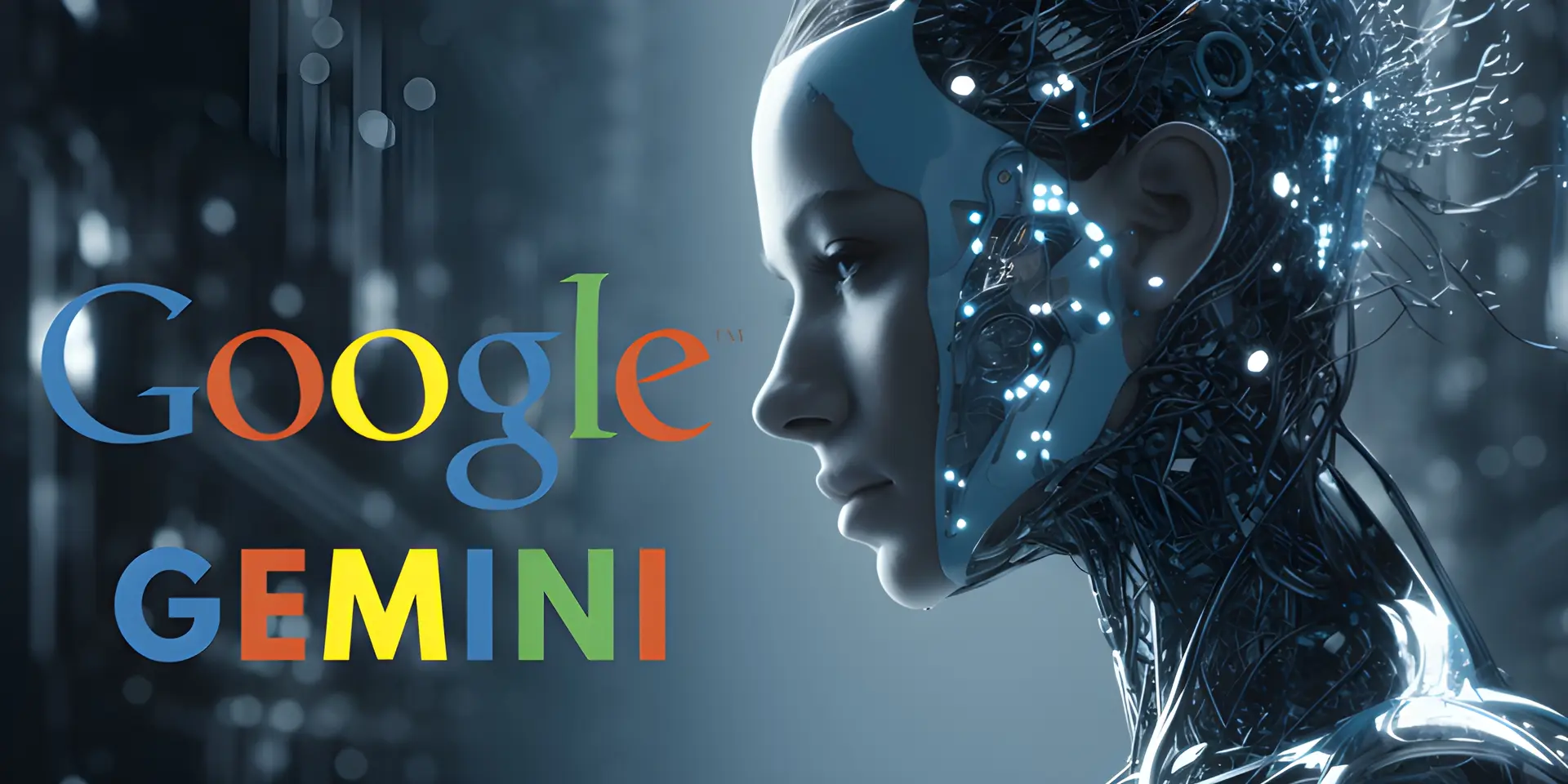Gemini AI vs. ChatGPT: 5 facts about Google's challenger
Heralding a new phase in AI at Google, Google regained its footing with its latest language model and ChatGPT’s apt rival, Gemini AI. Let's dig in!
The year 2023 marked a phenomenal shift in the landscape of artificial intelligence. The dominant juggernaut in the world of AI, Open AI’s ChatGPT found itself challenged by a rising star. Google, the search engine behemoth, regained its footing with its latest language model and ChatGPT’s apt rival, Gemini AI.
As proclaimed by Sundar Pichai, it heralds a new phase in AI at Google. Gemini marks a monumental leap in AI models that promises to revolutionise the entire spectrum of Google products. Pichai and Google DeepMind CEO Demis Hassabis praised its significance, emphasising how this technology seamlessly integrates across Google's diverse offerings.
Wondering what does this new AI titan promise? What are the quirky features that establish its dominance? Read on to know more!
Google’s Gemini AI

Google introduced Gemini, an innovative generative AI model touted as the tech giant’s groundbreaking achievement in AI development. Deemed the most versatile and potent AI to date. Underscoring Gemini's adaptability across various mediums, including graphics, text, voice, and video, Google envisions expanding this advanced iteration of the large language model (LLM) in the coming year.
The vice president of the AI chatbot Bard, Sissie Hsiao, asserted in a press that Gemini Pro not only exceeded GPT-3.5 but surpassed it across six out of eight industry benchmarks. Moreover, the more advanced version, Google Gemini Ultra, outperformed GPT-4 across seven metrics.
During its launch, Google showcased Gemini's remarkable understanding by demonstrating its ability to distinguish between a real-life blue rubber duck and a drawing of a duck in a video presentation.
Gemini debuts in three distinct models–
- Gemini Ultra: the largest and most robust, tailored for highly intricate tasks
- Gemini Pro: designed for a broad spectrum of functions
- Gemini Nano: catered to Android users aspiring to develop Gemini-powered apps
Demis Hassabis, CEO, and co-founder of Google DeepMind, expressed in a blog post on behalf of the Gemini team, “Its state-of-the-art capabilities will significantly enhance the way developers and enterprise customers build and scale with AI.”
Without further ado, let’s learn about the amazing facts about Google’s Gemini.
Can be your human best friend!
The hallmark of Google’s Gemini lies in its uncanny emulation of human interaction, in both sight and conversation.
Similar to GPT-4, Gemini functions as an indirectly accessible AI model, serving as a framework for Google and potential future developers to craft innovative products. Its remarkable Natural Language Processing (NLP) facilitates customised responses to users, distinguishing it from conventional chatbots. This capability enables it not only to understand what someone says but also to decode their tone, and even their emotions–anger, happiness, uncertainty, context, and subtle nuances.
Gemini proudly claims to be the “first model to outperform human experts on MMLU (massive multitask language understanding), which uses a combination of 57 subjects such as math, physics, history, law, medicine and ethics for testing both world knowledge and problem-solving abilities”.
Versatile adaptability
Comprising three distinctive models—Ultra, Pro, and Nano—Gemini 1.0 presents a varied suite of capabilities. Its most advanced version– Gemini Ultra, stands as the most potent Large Language Model (LLM), tailored explicitly for handling highly complex tasks at enterprises.
Meanwhile, Gemini Pro emerges as the most versatile among the trio. Being already integrated into Bard, it caters to prompts necessitating advanced reasoning, planning, and comprehensive understanding. Accessible to developers and enterprise clients through the Gemini API, this model will be available via Google AI Studio or Google Cloud Vertex AI starting December 13, offering a gateway to its expansive potential.
In contrast, Gemini Nano, touted as the epitome of efficiency for on-device functionalities, finds its home within the Pixel 8 Pro. Its optimised design excels in tasks like information summarisation and Smart Reply.
Advanced multimodality
Multimodal AI, a cornerstone of Gemini's skillset, gathers data from diverse sources with the help of multiple senses—text, images, music, and more. This multifaceted approach fosters a more organic and comprehensive interaction between users and the AI, crafting engaging and immersive experiences.
Users can pose queries, receive written responses, and upload photographs and documents. Leveraging multifaceted communication akin to human interaction, Gemini AI comprehends and responds to users with greater depth, complexity, and contextual understanding.
According to Hassabis, this evolution aims for broader horizons, extending to realms like actions and tactile engagement akin to robotics. As Gemini progresses, it will evolve to embrace additional senses, increasing its precision, awareness, and functionality.
Beats GPT-4 in benchmark assessments
Google's assertion rings true as Gemini, specifically, Gemini Ultra surpasses its competitors across a spectrum of tasks.
The model outshone others by securing the top position in six out of eight benchmarks. In multimodal capabilities encompassing audio, natural image, and video comprehension, Gemini Ultra's performance soared, surpassing state-of-the-art results in 30 out of 32 benchmarks tailored for large language model (LLM) development.
Notably, the comprehensive array of benchmarks showcased Gemini Ultra's dominance mainly over GPT-4. On the other hand, the consumer-focused Gemini Pro, akin to GPT-3.5 in accessibility, landed between the capabilities of GPT-3.5 and GPT-4, exhibiting superiority over GPT-3.5 in six out of eight tests.
While benchmarks serve as a yardstick, their translation into real-world scenarios holds pivotal significance. In this context, Gemini Pro—akin to GPT 3.5, accessible for free—stands poised to offer substantial advantages to average users.
Safety and reliability
While the ability to reason and precision stand as crucial hallmarks of an exceptional AI model, these qualities fall back without the inclusion of stringent safety measures.
Recognising this, Google emphasises the incorporation of “best-in-class adversarial testing techniques” as part of its preparatory measures before deploying Gemini. So, by proactively addressing these concerns, Google aims to uphold the ethical and responsible usage of its AI technology.
Although the most potent features of Gemini are slated for a future release, a mid-tier version of this model has already been implemented within Bard, Google's chatbot. This update marks Bard's most significant enhancement to date, aligning its capabilities more closely with the functionalities of the free version of ChatGPT, powered by the GPT-3.5 model. The eagerly anticipated high-powered aspects of Gemini will be available in due course.








